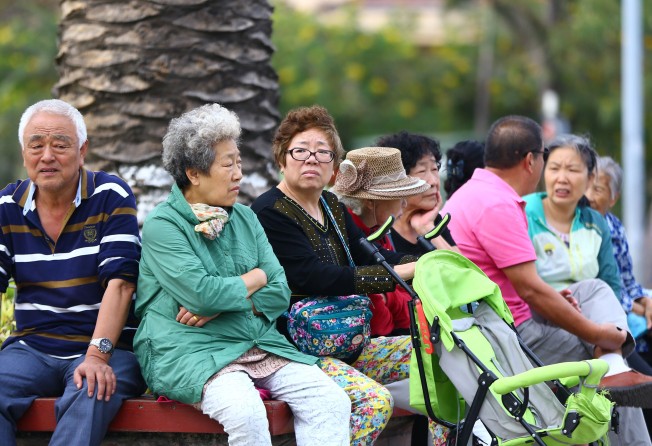Beijing to ‘guarantee’ funding for health care, education and pensions in China’s poorest regions
The central government pledges to set a floor for basic public services but a question mark hangs over costs and access for migrant workers

China will set nationwide minimum standards for basic public services, including education, health care and pensions, with the central government shouldering the bulk of the funding burden for the programmes in the country’s poorest provinces.
Without saying how much the plan might cost or how it would work, the State Council, China’s cabinet, said this week it would start rolling out the scheme in January next year.
It said the goal was to have a “basic public service system and guarantee mechanism” with “clearly defined responsibilities and reasonable standards” in place by 2020.
Under the existing system, provincial and municipal authorities are responsible for financing welfare and social services in their jurisdictions despite having to hand over much of their fiscal revenue to Beijing. As a result, schools, hospitals and other public services in underprivileged areas are often underfunded.
The new scheme would also help fund vocational training, employment, family planning and a basic living allowance, the State Council said.
The funding to each region would depend on the affluence of each area, and the type of service required, it said.
For example, the central government will cover between half and all of the cost of pensions, with 22 provinces set to get the full benefit.
The funding range for education would be between 50 per cent and 80 per cent, and between 10 and 80 per cent for health care, it said.
But analysts questioned whether the plan would effectively tackle inequality on the ground and how it would apply to the country’s 169 million migrant workers who have left their hometowns and their families.
Qian Li, deputy head of Peking University’s China Centre for Public Finance, said the scheme would do little to help transform China into a market economy for public services.
“The central government is centralising fiscal power, but how will that help migrant workers get access to much needed public services in the cities where they actually live?” Qian said.
Liu Kaiming, head of the Institute of Contemporary Observation in Shenzhen, agreed that most of the people who worked away from home would see little or no benefit from the new “guarantees”.
“Even under the new system, the children of migrant workers would still not have access to affordable public schools,” Liu said.
“A big number of migrant workers are forced to leave Shenzhen after years of working there because they are not entitled to all of the social welfare benefits given to permanent residents.”
People across China are hamstrung by a household registration system known as hukou, which means they are entitled to full social welfare benefits only in the town or city in which they – or in the case of the children of migrant workers their parents – were born.
In the 1990s, China implemented a massive fiscal reform, which allowed Beijing to take a much larger share of the revenue generated by provincial authorities. However, it reinvests only a fraction of that money in the social welfare system.
According to official figures, the central government claimed about half of the 17 trillion yuan (US$2.68 trillion) the country generated in fiscal revenue last year, but contributed just 15 per cent of the 20 trillion yuan it spent.